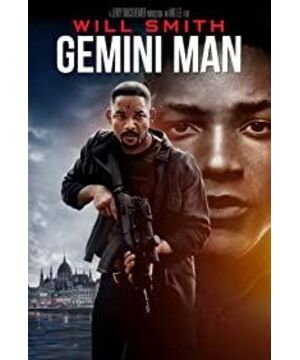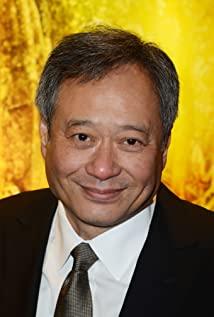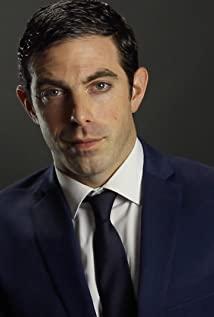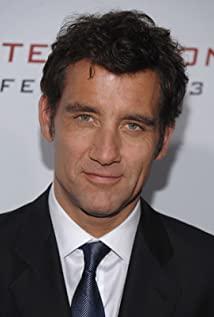01
I watched Ang Lee's new film "Gemini Man" twice.
One 60-frame version, one 120-frame version.
Watching the 120-frame version was the best movie-watching experience I had in the theater this year, not from the movie, but from the environment.
During the entire viewing process, no one was chatting, no one was playing with their mobile phones, and no one could even hear the sound of chewing popcorn...
Everyone is staring at the screen intently, trying to discover the beauty that has never been seen in the 120-frame picture, to prove that it is worth the ticket price that is more than the number of frames.
I don't know if all the people who were with me got their wish?
But for me, it is extremely unsatisfactory.
It's not a question of worth the price, but: how much I'm looking forward to seeing something amazing in this film.
In particular, Ang Lee has tried the previous work and used 120 frames for the second time. I think there will be some new discoveries.
But unfortunately, I didn't see it.
And after the popularization of "Billy Lynn's Halftime Battle", the original mystery of 120 frames no longer exists.
So, what's left?
Perhaps only Ang Lee's self-questioning line is left: " I'm the only one who shoots like this right now. Is there something wrong with me, or is there something wrong with the world? "
02
Before talking about "technology", let's talk about "story" first.
If the "technology" of "Gemini Man" is a kind of parameter increase, then the "story" is undoubtedly an all-round dimensionality reduction.
This dimensionality reduction is not only from complex to simple, but also from novel to old-fashioned .
The story of "Gemini Man" is too old-fashioned, whether it is compared with Ying Shi or Ang Lee himself, there is nothing new.
Simply put, it tells a story about clones.
U.S. intelligence agent Henry turns 50 and is about to retire when he is accidentally pursued by a mysterious killer.
It turned out that the killer was Henry's clone - a self more than 20 years younger than him.
Thus, the battle between the two "Is" begins.
This reminds me of Borges' short story " Another Man ", about an old Borges who meets his 19-year-old self by chance, and the two sit on a bench chatting about their views on life and literature.
Ultimately, the conversation ended in failure.
The young people couldn't listen to anything the old man said at all. Although they were the same person, the huge difference in time and space had separated them into two completely different people.
In contrast, "Gemini Man" is more optimistic.
After Ang Lee let the two "Is" experience the initial confusion and disputes, they reached a settlement.
In the end, under Henry's guidance, Xiao Ke put down the butcher's knife and returned to a normal life.
A standard Hollywood happy ending.
In the process of leading to this ending, we can see the shadow of Ang Lee's previous works everywhere.
First, post-traumatic sequelae .
Like "Billy Lynn's Halftime Battle", Henry, the protagonist of "Gemini Man", is also traumatized by "killing".
He is a professional killer, killing people like hemp. Now that I am old and regretful, the memory of the past is like a nightmare.
Just then, Xiao Ke appeared.
Xiaoke is not only a clone, a young killer, but also a spiritual symbol.
What does it symbolize?
Symbolizes "Henry's past".
And Xiaoke's pursuit of Henry is actually a metaphor for the entanglement and backlash of "the past self" against the "present self".
This is exactly the predicament Henry is facing at the moment.
Secondly, you may have also thought of, what is this fight between "self" and "self" like?
Yes, like " The Fantastic Drifting of Pi ".
It's just that "Youth School" is more obscure, and it is a game between humans and tigers.
The tiger symbolizes a kind of "animality", and in the end, man tamed the tiger and obtained salvation.
And "Gemini Man" is more direct, showing the two "Is" directly.
These two "Is" are mirror images of each other, one representing the future and the other representing the past.
And their way of redemption is diametrically opposite. Henry wants to get rid of the "killing memory" of the past, and Xiao Ke wants to avoid the "killing life" in the future.
From this, we watch the three fighting scenes in the film, and the logic is very clear.
First it was a chase scene, where the two "Is" were testing each other; then there was a close-quarters fight, where the two "Is" refused to give in to each other; until finally, the two "Is" joined forces to kill the "third me" .
That "third me" is also a clone, without emotion, without pain, a pure killing machine.
Henry and Xiao Ke worked together to kill him, just as they abandoned the "natural nature of killing" together, and obtained their own liberation.
Finally, the shadow of patriarchy.
Anyone who is familiar with Ang Lee knows that "fatherhood" is his lingering pain, and it is also an expression of his uncontrollable feelings.
In "Gemini Man", there is also this layer of expression.
As a clone, Xiaoke has no biological father. He was created by Cray, manipulated by Cray, and trained to be a killer.
Later, he met Henry, and under the guidance of the latter, he gradually got to know himself.
For your future, should you listen to your father's words? Or should I listen to what my future self has to say?
The film tells us the answer in this way.
It is about how a boy stepped out of the shadow of patriarchy and regained control of his own life.
To sum up, the content of "Gemini Man" is actually what Ang Lee once expressed.
Only this time, Ang Lee used a more genre-defining filming method to hide the expression deeper.
However, hiding deeply does not mean thinking deeply enough.
On the contrary, this time the expression is relatively shallow.
It can even be summed up like this: "Gemini Killer" is a low-profile version of Ang Lee's previous work.
03
Next, let's talk about "technology".
First of all, let me talk about my fundamental attitude towards "technology".
I remember when I wrote a review of Alfonso Cuaron's "Roma", the first sentence was: Technology is a tool.
It should serve image and expression, not the other way around.
"Roma" is a good example.
Alfonso Cuaron spent a lot of money to recreate a middle-class neighborhood in Mexico in the 1970s. You can imagine how high the "technical" content behind this is, but in the film, you can't see the shadow of the technology at all, they all become the background of the image.
That's the use of good technology.
Of course, the "soft technology" in Gemini Man is different from the "hard technology" in "Roma".
But what I want to say is that no matter what level of technology, it should follow the same principles. That is: technology can not steal the show, it should only be used as the infrastructure to support the film.
From this perspective, how well does the technology in Gemini Man work?
We divide it into two parts:
The first part, motion capture .
The second part, 120 frames .
In "Gemini Man", Ang Lee used "motion capture" technology to make Xiao Ke, the young Will Smith.
This technology itself is quite successful, and there are almost no flaws.
Moreover, compared with the previous "Alita", "Gemini Man" is even purer.
In "Alita", the director deliberately made Alita different from people in order to highlight the technical skills. He wants to remind the audience at all times: Although Alita is not a "person", you can see how natural and realistic her expressions and movements are, she is more like a "person" than a "person".
Behind this, there is undoubtedly a dazzling color.
But "Gemini Killer" is not like this. What Ang Lee pursues is to "mix the real with the fake".
That's what I said, technology serves images.
That's what good technology should do: it's ubiquitous, but it's hard to find.
Let's say "120 frames" below.
This has to say a few words about "Billy Lynn's Midfield Battle".
Someone once said: "Billy Lynn" is like a "120 FPS" big promo.
A bit of an exaggeration, but I basically agree.
A large number of shots in "Billy Lynn" are not designed for the needs of film expression itself, but for the "high definition" of 120 frames.
This puts the cart before the horse a bit.
What about "Gemini Man"?
It can be said that it is "relative restraint", and there are not too many shots that are purely dazzling.
In this way, we can also look at it relatively objectively.
There are probably two most mainstream arguments, which are intended to demonstrate the goodness of 120 frames.
One is " immersion " and the other is " clarity ".
To some extent, the former is also a derivative of the latter.
Admittedly, 120fps is indeed sharper.
But does clarity necessarily lead to a deeper sense of immersion?
This logic is not as logical as it seems.
Not to mention that film is a comprehensive art, there are many factors that affect "immersion", let's talk about "clearness", I have seen many people give examples, and they are nothing more than the same: human faces. The pores on the plane are fully visible, the flying pieces of the bomb are vivid, and the passengers on the train are clearly visible...
These are nothing more than gimmicks . In essence, it is no different from frightening the audience with objects flying out of the screen when 3D was first born, and the impact on "immersion" is minimal.
At the same time, "clarity" presents a big problem.
These are also two things that I experienced very strongly this time.
First, because the picture is too clear, the information is overloaded, which is difficult for the human eye to digest.
This will also affect the composition in turn. It is conceivable that if you use 120 frames to shoot a large group scene, it is likely to be disastrous. Viewers simply don't know where to look.
Second, the picture is clearer, but the look and feel has become "fake".
Why?
Because the essence of the camera is to simulate the effect of the human eye.
And 120 frames is more than the human eye in terms of clarity and brightness.
This also brings about a very embarrassing situation. Although 120 frames restores reality more "real", it looks more "fake" to the human eye.
The above two points, in turn, are actually destroying the "immersion".
Well, let's leave the "clear" thing for now.
Let's talk about something more essential.
Ang Lee wanted to do two things with 120 frames this time.
First, let everyone see that under 120 frames of inspection, my motion capture technology can still be flawless.
Second, try an action movie with 120fps and see what breakthroughs you can make.
The latter is what I want to talk about today.
In my opinion, this attempt is a little thankless.
Because there is a natural conflict between "action scenes" and "120 frames", it is difficult to adapt to each other.
What to watch in action scenes?
Look at speed, pursue coolness.
But what is 120fps?
Essentially, 120fps actually slows down time.
If 3D opens up space, then 120 frames actually expands time. It makes the same 1 second, originally presented with 24 frames, but now needs to be laid out with 120 frames.
It makes "time" seen more clearly, but at the same time, it also makes time slower in perception.
This is what I call conflict.
For example, in the fighting scenes in the film, every punch, from the move to the end, can be clearly seen. It gives the feeling that it is soft and powerless, and has lost its cool feeling.
All that said, I didn't see the need for 120fps in Gemini Man.
I am also not satisfied just from subjective aesthetics.
04
A few last words.
"Gemini Man" uses the most advanced technology to tell a too mundane story, and the technology itself fails to provide a new aesthetic direction.
They all say: "The predecessors planted trees, and the later generations enjoyed the shade."
Ang Lee planted the seed in "Billy Lynn", and in "Gemini Man", that seed began to sprout, and maybe one day, it can grow into a towering tree.
But who was enjoying the shade at that time, we can only wait for the answer.
View more about Gemini Man reviews











